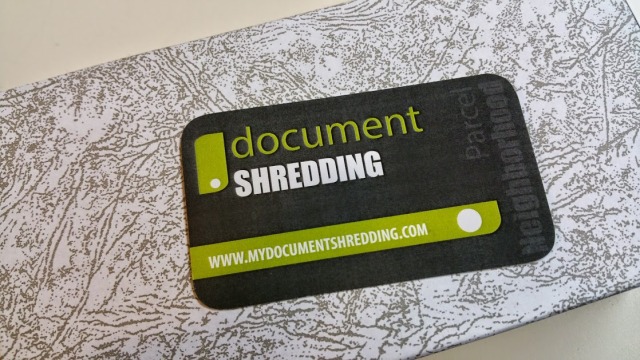Steri•safe® hipaa compliance solutions stericycle.
575what Does Hipaa Require Of Covered Entities When They
Medical records contain the medical history of a patient to allow health professionals to more easily provide care based on their medical history. it’s a central repository for documented information from professionals/providers on a patient’s care and can be used to aid in the future planning of the patient’s care. The business associate may pick up the records from the covered entity, dispose of them, and hipaa medical records destruction then deposit them into a landfill or other appropriate area. covered entities may also maintain phi for disposal in a secure area until it is picked up by a disposal vendor for destruction.
Medical record destruction it is hipaa mandated.
Pair your hipaa compliance with our regulated medical hipaa medical records destruction waste service. with over 30 years of experience serving facilities like yours, we can ensure compliant pickup, treatment, and disposal of your medical waste.
Medical records potential liabilities • criminal penalties: fraudulent claims improper destruction of records pending investigation violation of hipaa privacy • administrative sanctions: — licensing actions — exclusion from medicare/medicaid — civil monetary penalties — npdb report. Office for civil rights headquarters. u. s. department of health & human services 200 independence avenue, s. w. washington, d. c. 20201 toll free call center: 1-800-368-1019. Hipaa’s privacy protection and destruction laws apply for medical records in all formats—whether it’s an electronic health record or a paper one, be sure to take the proper steps when disposing and destroying any medical record to ensure your hipaa compliance. Destruction of patient health information by a medical office or pediatrician must be done in accordance with federal and state law. it should be follow the individual hipaa medical records destruction practice's proper written retention schedule and destruction policy.
Destruction Of Protected Health Information
In summary the hipaa privacy medical records laws provide patients with more access to their medical records and how this information is used and disclosed. the hipaa privacy standard also defines the responsibilities of providers and insurers when using patient hipaa medical records destruction information for treatment and payment of health care. While there are differences in the specific information contained in medical records and other documents, the best security practices for all records involve secure document retention and destruction policies.. when it comes to hipaa and medical records shredding, there are mandatory retention laws for documents that require medical records to be kept for a period of time. Whether your medical records are paper, fully electronic or a hybrid of the two, we have a solution, which will meet your needs. fully outsource: outsource the entire release of information function to us for a fully compliant, hipaa-certified, standardized process.

Hipaa regulations require that patient documents must be kept a minimum of six (6) years. the medical records act states that unless a patient is a minor, medical records, laboratory and x-ray reports must be kept at least five years (see §4-403 below). In many cases, the statutes of limitation are longer than any hipaa record retention periods. when the retention periods for medical records and hipaa documentation has been reached, hipaa requires physical and electronic forms of phi to be disposed of securely to prevent impermissible disclosures of phi. see 45 cfr § 164. 310(d)(2)(i-iv). Hipaa was written to protect and prevent abuse of protected health information (phi) by requiring providers to use physical and technical safeguards. records affected by hipaa. hipaa lays out a specific list of medical records and phi that need secure storage and destruction. common medical records include: patient histories; x-rays. Medical record retention and destruction logs additionally, keeping medical records and destruction logs help keep track of the records you’re currently retaining and have already destroyed. maintaining a log helps simplify records management, but also helps ensure you’re staying compliant with hipaa and other state laws.
Lost patient records, or lost medical records, can have an impact on your patients' right to privacy and can put your practice at risk of a hipaa violation. it's important to check your company's data destruction and retention policies in light of such episodes. Destruction of protected health information health insurance portability and accountability act (hipaa) destruction of patient health information by a medical office or pediatrician must be done in accordance with federal and state law. it should be follow the individual practice's proper written retention schedule and destruction policy. The law requires that all employees with patient knowledge or access to medical records be trained in hipaa policies and limits for their retention and destruction. federal and civil penalties. In addition, the hipaa security rule requires that covered entities implement policies and procedures to address the final disposition of electronic phi and/or the hardware or electronic media on which it is stored, as well as to implement procedures for removal of electronic phi from electronic media before the media are made available for re-use.
Medical Records Laws Medical Record Laws Subpoena Medical

Fail to comply with the 2021 medical record destruction rules, and you’ll lose up to $50,000 per violation. lots of practices have faced real financial losses from violating medical records retention and destruction laws. surplus films but paid little attention to the destruction of the paper radiology records associated with the silver recovery from their outdated x-ray film however, with the development and enforcement of hipaa regulations for medical records, it became apparent that our customer base Nov 06, 2015 · for phi in paper records, shredding, burning, pulping, or pulverizing the records so that phi is rendered essentially unreadable, indecipherable, and otherwise cannot be reconstructed. maintaining labeled prescription bottles and other phi in opaque bags in a secure area and using a disposal vendor as a business associate to pick up and shred.


The video covers hipaa’s background and retention standards, general recommendations for how long to keep different types of medical records, and how to best manage retention and destruction for both your paper medical records and emrs. Hipaa provides some protection, but does not resolve the issues involving medical records privacy. [32] medical and health care providers experienced 767 security breaches resulting in the compromised confidential health information of 23,625,933 patients during the period of 2006–2012. Hipaa’s privacy protection and destruction laws apply for medical records in all formats—whether it’s an electronic health record or a paper one, be sure to take the proper steps when disposing and destroying any medical record to ensure your hipaa compliance. what it means to have hipaa compliant shredding services.
Joint commission rc. 01. 05. 01: the hospital retains its medical records. the retention time of the original or legally reproduced medical record is determined by its use and hospital policy, in accordance with law and regulation. patient health and medical records (adults): 10 years after the most recent encounter. For phi in paper records, shredding, burning, pulping, or pulverizing the records so that phi is rendered essentially unreadable, indecipherable, and otherwise cannot be reconstructed. maintaining labeled prescription bottles and other phi in opaque bags in a secure area and using a disposal vendor as a business associate to pick up and shred. Before you destroy records. just as important as actually destroying your patients’ digital medical records, when necessary, is the preparation that is required. hipaa requires training on disposal for any employee involved in disposing of phi, or who supervises employees who dispose of phi. this includes part-time employees and volunteers. A properly destroyed medical record or piece of phi is defined, according to hipaa medical records destruction hipaa, as being rendered “unreadable, indecipherable, and otherwise unable to be reconstructed. ” phi cannot and should not be abandoned in dumpsters or public containers, including recycling bins.